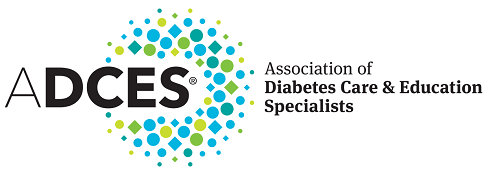
Showcasing ADCES in the News
Discover the latest announcements, activities and involvement in diabetes care and education featured in our news releases.
Press Releases

Get a Closer Look at ADCES in the News
As an association that supports the delivery of diabetes care and education, we're actively involved in finding ways to enhance the lives of people living with diabetes, prediabetes and related cardiometabolic conditions.
That means working together with national, state and local communities to support healthcare workers who care for people with diabetes. Find out more about who we are and what we’re doing in our latest news releases.
The Association of Diabetes Care & Education Specialists Receives CDC Funding to Advance Health Equity for Priority Populations.
5/13/2024
Media Contact: Danielle McNary
FOR IMMEDIATE RELEASE
CHICAGO, IL—The Association of Diabetes Care & Education Specialists (ADCES®) received a $5 million grant from the Centers for Disease Control and Prevention (CDC). The grant, CDC-DP-23-0020, aims to advance health equity for priority populations with or at risk for diabetes. This funding will allow ADCES to serve individuals from youth to older adulthood by offering evidence-based, practice-based interventions on diabetes management, Type 2 diabetes prevention and childhood obesity.
This project will span five years, focusing on a variety of strategies aimed at reducing risk for diabetes in adults and children and providing culturally tailored care for individuals already diagnosed with diabetes. These strategies include:
Improving access, appropriateness and feasibility of diabetes self-management education and support (DSMES) services for priority populations.
Increasing enrollment and retention of priority populations in the National Diabetes Prevention Program (National DPP) lifestyle intervention and the Medicare Diabetes Prevention Program (MDPP).
Enhancing the capacity of the diabetes workforce to address social determinants of health factors that impact outcomes for priority populations.
Another key strategy will focus on implementing and sustaining evidence-based, family-centered childhood obesity interventions. Childhood obesity affects 1 in 5 U.S. children and adolescents and is more common among Black and Hispanic children and those from families with low income or less education. Developing strategies that support this group marks a new and crucial focus area for ADCES.
“Adults with diabetes have a higher risk for stroke, heart disease and mental illness. Childhood obesity can lead to the same comorbidities as seen in adults and puts our youth at a higher risk of developing Type 2 diabetes,” said ADCES Chief Operating Officer Leslie Kolb, DrPH, MBA, RN. “Family members, caregivers and evidenced-based programming can be effective resources, so it’s crucial we bring more family health weight programs to those communities and youth most in need.”
ADCES will partner on this project with three Federally Qualified Health Centers (FQHCs) in three states — Ampla Health serving rural Northern California; Medlink Georgia, Inc. serving 6,400 square miles of Northeast Georgia; and The Health & Hospital Corporation of Marion County dba Eskenazi Health Center serving the underserved regions of Marion County, Indiana. Each of these partners have existing accredited diabetes self-management education and support (DSMES) programs through the ADCES Diabetes Education and Accreditation Program. FQHCs provide care to some of the most high-risk and underinsured individuals, 21% percent of whom report being told they have diabetes compared to 11% of the general adult population, according to the National Library of Medicine. These partnerships will ensure evidence-based programming reaches these specific populations, which is an imperative goal in this effort.
###
About ADCES
ADCES is an interdisciplinary professional membership organization dedicated to improving prediabetes, diabetes and cardiometabolic care through innovative education, management and support. With more than 12,000 professional members including nurses, dietitians, pharmacists and others, ADCES has a vast network of practitioners working to optimize care and reduce complications. ADCES supports an integrated care model that lowers the cost of care, improves experiences and helps its members lead so better outcomes follow. Learn more at adces.org or visit us on Facebook or LinkedIn (Association of Diabetes Care & Education Specialists), X (@ADCESdiabetes) and Instagram (@ADCESdiabetes).



Leave a comment